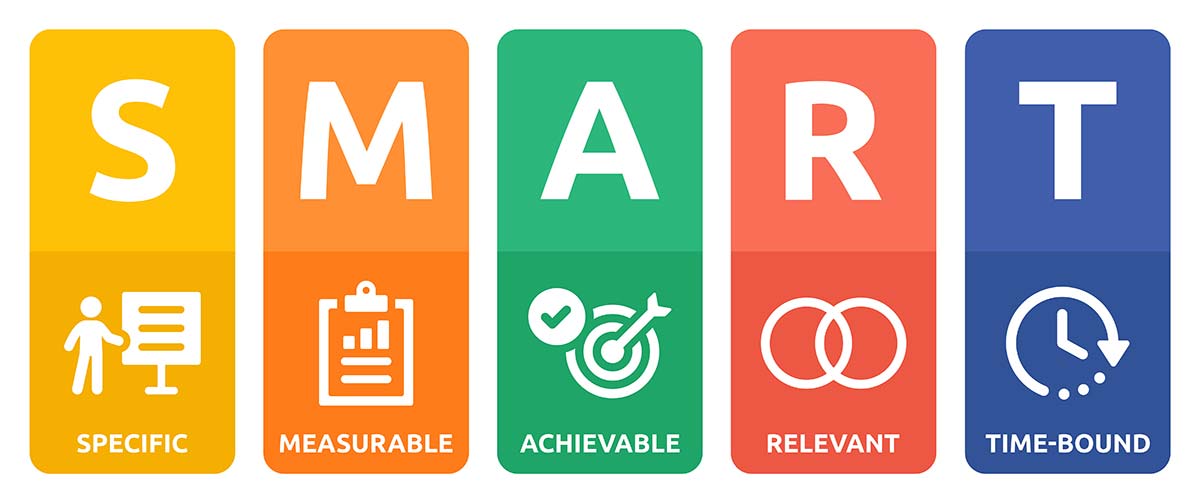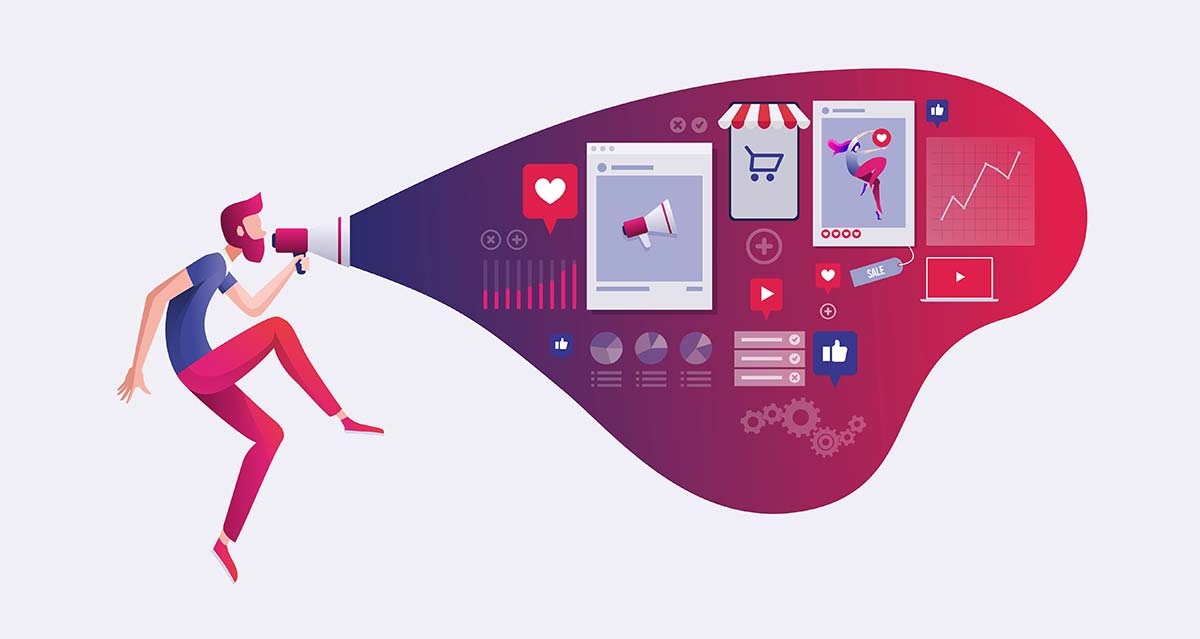In a world where every click and scroll can tip the scales, digital marketing transcends traditional gameplay to become the arena itself. In this competitive landscape, businesses of all sizes and types—whether B2B or B2C—deploy an arsenal of tools from SEO and social media to email and blogs, not just to appear online, but to truly resonate with their audience.
This guide dives deep into the nuances of digital marketing, exploring its multifaceted nature, pivotal advantages, and the challenges that shape its landscape. From foundational strategies to cutting-edge trends like automation and artificial intelligence, we’ll detail how these elements intertwine to craft successful campaigns. This isn’t just for marketing veterans or newcomers but for anyone looking to harness the full potential of digital tools to engage and expand their audience.
Let’s navigate through the noise and focus on what truly matters—forging meaningful connections and driving growth in the digital age. Join us as we lay out the essential steps and innovative approaches to develop a digital marketing strategy that not only meets but exceeds your strategic goals.
Key Takeaways:
- Digital marketing is a form of marketing that uses digital channels to reach and engage with customers.
- The key benefits of digital marketing include broader reach, targeted audience, measurable results, and cost-effectiveness.
- To create a successful digital marketing plan, it is essential to define your target audience, set clear goals, choose the right channels, create engaging content, and regularly monitor and adjust your strategy.

What Is Digital Marketing?
Digital marketing is a cornerstone of any comprehensive marketing plan. It leverages a broad spectrum of digital tactics and channels to forge connections with customers who are predominantly active online. Unlike traditional marketing, which relies on print and television, digital marketing encompasses a wide range utilizing online platforms and technologies.
Its strength lies in the precision of targeting specific demographics, the capacity to accurately measure campaign success, and the opportunity for real-time consumer engagement. This marketing form has rapidly evolved, driven by the vast expansion of social media marketing, mobile marketing, and the analytical power of data analytics. These advancements empower businesses to fine-tune their strategies with content marketing, digital ads, and social media marketing, enabling targeted advertising, crafting personalized content, and maintaining responsive communication with their audience.
Want a real world example? Coca-Cola’s “Share a Coke” campaign leveraged digital platforms alongside traditional media to great effect. They used personalized ads on Facebook, created interactive billboards, and even offered customized Coke bottles online. This blend of digital and traditional marketing led to a significant increase in consumer engagement and sales across various channels, demonstrating the powerful synergy between different marketing approaches.
What Are The Different Types Of Digital Marketing?
There are various forms of digital marketing that businesses can leverage, including social media marketing, inbound marketing, affiliate marketing, mobile marketing, email marketing and influencer marketing, each offering distinct advantages and opportunities within the digital landscape.
Affiliate marketing involves partnering with individuals or other businesses to promote products or services, providing a cost-effective way to reach new audiences. Mobile marketing, on the other hand, capitalizes on the prevalence of mobile devices, enabling targeted advertising and personalized engagement. Influencer marketing leverages the credibility and reach of influential individuals on social media to endorse products and create brand awareness.
B2B vs. B2C Digital Marketing
In the realm of digital marketing, the approach taken can vary significantly depending on whether the target audience is businesses (B2B) or consumers (B2C). Understanding these differences is crucial for tailoring strategies that resonate with the intended audience and achieve the best results.
B2B (Business-to-Business) digital marketing
B2B digital marketing typically involves longer sales cycles, a focus on relationship building, and content that is informative and value-driven. The decision-making process in B2B transactions often involves multiple stakeholders, requiring marketers to address various concerns and needs. Strategies often include LinkedIn marketing, whitepapers, detailed case studies, and webinars that provide deep dives into industry knowledge and solutions. For example, Dell Technologies’ “I.T. Squad” campaign utilized a creative approach by engaging with the community through humor and real IT discussions on Reddit, leading to a 200-fold increase in brand credibility and a 35% increase in Video Through Rates (VTRs) compared to standard social media campaigns.
In another example, Amazon Business significantly increased brand awareness and consideration among procurement professionals with its “Buy Smarter, Dream Bigger” campaign, which introduced the concept of smart business buying and resulted in reaching 95% of the target audience with a frequency of 65 times, and garnering a total of 3.5 billion impressions.
B2C (Business-to-Consumer) Digital Marketing
B2C digital marketing strives to connect with individuals on a personal level, evoking emotions that prompt immediate actions, such as making a purchase. These strategies are often characterized by direct messaging, eye-catching visuals, and persuasive calls to action. Channels like Instagram, Facebook, and YouTube are popular for rapidly scaling engagement and measuring its impact effectively. The content tends to be visually oriented and promotional, aiming to create viral campaigns that enhance brand visibility and engage consumers deeply.
A powerful example of B2C digital marketing is Nike’s “Dream Crazier” campaign, which features a poignant video narrated by Serena Williams. Launched during the Oscars, the video showcases female athletes who have broken barriers, encouraging women to pursue their “crazy” dreams.
 The narrative challenges the stereotypes and labels placed on women in sports and beyond, stating, “if we show emotion, we’re called dramatic. If we want to play against men, we’re nuts. And if we dream of equal opportunity, delusional.” It builds to a crescendo of examples of women achieving the inconceivable, underlining the message with, “So if they want to call you crazy, fine. Show them what crazy can do.”
The narrative challenges the stereotypes and labels placed on women in sports and beyond, stating, “if we show emotion, we’re called dramatic. If we want to play against men, we’re nuts. And if we dream of equal opportunity, delusional.” It builds to a crescendo of examples of women achieving the inconceivable, underlining the message with, “So if they want to call you crazy, fine. Show them what crazy can do.”
The campaign leveraged social media platforms to encourage viewers to share their own stories, leading to viral spread and significantly boosting Nike’s digital engagement.
This campaign not only resonated deeply with young women but also reinforced Nike’s commitment to gender equality, increasing its social media followings and interactions. The culmination of the campaign with the empowering statement, “It’s only crazy until you do it,” effectively turned a cultural stigma into a call to action, embodying the emotional and cultural resonance that B2C digital marketing aspires to achieve.
These distinctions and strategies underscore the need to deeply understand the target market’s preferences and behaviors, allowing marketers to craft approaches that effectively engage and convert the right audience.
Why Is Digital Marketing Important?
Digital marketing offers numerous advantages, underscoring why online marketing has become an integral part of the overall marketing strategy. It includes the ability to reach a wider audience, engage with customers in real-time, and track the effectiveness of marketing efforts more accurately than traditional methods. This form of marketing allows businesses to leverage various digital channels such as social media, email, and search engines to connect with their target demographics.
By utilizing engaging content and targeted advertisements, companies can establish a more personal connection with their customers, fostering brand loyalty and trust. In addition to this, digital marketing also facilitates instant feedback and interaction, enabling businesses to adapt their strategies in response to customer preferences and market trends almost immediately. This adaptability is a testament to how digital strategy and digital media go far beyond simply broadcasting messages; it’s about creating a dialogue and building relationships.
What Are The Advantages Of Digital Marketing?
Digital marketing enables businesses to create targeted marketing campaigns, leverage a wide range of digital channels, and personalize their approach to engage and convert customers effectively.
The benefits of digital marketing are extensive and varied. Digital marketing has become crucial as it allows businesses to target specific demographics with precision, ensuring that marketing efforts reach the right audience. This targeted approach increases the probability of conversion and boosts return on investment.
The diversity of digital channels, including social media, email, and search engine marketing, provides businesses with a comprehensive platform to reach prospective customers. Digital marketing strategies can be customized to cater to different consumer segments, fostering a personalized and impactful marketing approach. It allows businesses to introduce their products and services directly to those who need them most, effectively spreading awareness and driving engagement.
 Global vs. Local Marketing Strategies
Global vs. Local Marketing Strategies
Digital marketing offers the flexibility to implement both global and local marketing strategies, each with unique benefits and techniques:
- Global Marketing: This involves broadening your market reach across international boundaries. It’s about standardizing your marketing efforts to resonate across different cultural and geographic landscapes. Techniques include multilingual SEO, global social media strategies, and cross-border e-commerce functionalities.
- Local Marketing: For businesses like Cider House Media that focus on local clientele, local digital marketing is critical. This strategy tailors your marketing efforts to the local community you serve. It involves:
- Local SEO: Optimizing your website and online content for location-based keywords.
- Geo-Targeting: Customizing content and ads based on the geographic location of the user, ensuring relevance and increased engagement.
- Local Listings: Ensuring your business is listed in local online directories and maintaining accuracy in your Google My Business information.
- Community Engagement: Engaging with local events and issues on platforms like social media to build a community presence and connect with local customers.
- Localized Content: Creating content that addresses local issues, events, or interests that appeal directly to the local customer base.
Use digital marketing techniques to further enhance the effectiveness of these strategies, ensuring that every campaign is as successful as possible.
What Are The Challenges Of Digital Marketing?
While digital marketing offers immense opportunities, it also presents challenges such as adapting to evolving marketing tactics, maintaining audience engagement, and navigating the complexities of digital platforms and technologies.
One of the major hurdles is the constant evolution of digital marketing tactics. This requires marketers to stay updated with the latest trends, technologies, and consumer behavior, which can be quite demanding. Ensuring consistent audience engagement amidst the ever-changing digital landscape is no easy feat. The influx of content and competition for attention makes it challenging to capture and retain the audience’s interest.
Navigating the complexities of digital platforms and technologies adds another layer of difficulty. With the emergence of new tools, algorithms, and channels, marketers often find themselves in uncharted territory, needing to adapt and innovate constantly.
 How Does Digital Marketing Work?
How Does Digital Marketing Work?
Digital marketing leverages a diverse range of strategies and tactics across various digital channels to showcase products or services, engage with different audiences, and drive the actions or conversions that businesses aim for. This field is vast and dynamic, constantly evolving with the advent of new technologies and shifts in consumer behavior.
Key Types of Digital Marketing:
- Search Engine Optimization (SEO): This is the art and science of optimizing your online content so that it ranks higher in search engine results pages for selected keywords. The goal is to attract more traffic to your website naturally without paying for it directly. Effective SEO involves adjusting the website structure and content to make it more attractive to search engines like Google and Bing.
- Content Marketing: Unlike traditional marketing techniques focused on direct promotions, content marketing strategy aims to attract and retain customers by creating and curating valuable and relevant content. By providing users with information that educates or entertains, businesses build relationships and establish authority, which indirectly promotes their products or services. Types of content marketing include blog posts, videos, podcasts, and infographics, all designed to provide value to the audience.
- Social Media Marketing: This strategy uses platforms like Facebook, Instagram, Twitter, and LinkedIn to promote a product or service. While its primary goal is to drive traffic and generate leads, social media marketing also enhances brand recognition and fosters a community around the business. Effective social media marketing involves engaging with followers, sharing valuable content, and participating in conversations to build a loyal community.
- Email Marketing: It remains one of the most effective digital marketing strategies. By sending targeted messages to a list of subscribers, businesses can communicate directly with prospects and customers to promote their brand or sell directly. Email marketing campaigns are cost-effective and can be highly personalized based on the user’s past behavior and preferences.
- Pay-Per-Click Advertising (PPC): PPC is a model of digital marketing where marketers pay a fee each time one of their ads is clicked. Essentially, it’s a way of buying visits to your site rather than attempting to “earn” those visits organically. Google Ads is one of the most popular PPC platforms which allows businesses to create ads that appear on Google’s search engine and other Google properties.
- Affiliate Marketing: This performance-based advertising rewards one or more affiliates for each visitor or customer brought by the affiliate’s own marketing efforts. It’s essentially a modern interpretation of a pay-per-commission sales model, whereby affiliates promote a product or service, often through their website or social media channels.
- Influencer Marketing: Brands collaborate with influencers who have a large following on social media to promote their products or services. Because of their authority and relationship with their audience, influencers can effectively sway their followers’ opinions and purchasing decisions.
- Video Marketing: This includes creating video content to promote and market your product or service, increase engagement on your digital and social channels, educate your consumers and customers, and reach your audience with a new medium.
Integration for Success:
To implement a digital marketing strategy, it is vital to integrate these various forms across a unified digital marketing campaign. This approach allows for each channel to support the others in a synergistic way, enhancing the reach and effectiveness of the overall marketing efforts.
For instance, content created for SEO purposes can be promoted through social media, which not only increases direct engagement but also improves organic search rankings. Similarly, email marketing can be used to distribute content directly to interested users, driving traffic back to the website and improving SEO results over time.
By understanding and applying these diverse digital marketing strategies, businesses can ensure a cohesive and effective approach that reaches customers across multiple touchpoints, driving meaningful engagement and conversions in today’s competitive market landscape. Digital marketing helps you reach and engage more effectively, while marketing is defined by using various digital tactics to achieve business goals.
What Are The Key Elements Of A Digital Marketing Strategy?
An effective digital marketing strategy encompasses the development of a comprehensive marketing plan, incorporating a blend of digital and traditional marketing techniques to achieve defined marketing goals and objectives.
Combining digital and traditional marketing approaches creates a synergistic effect, leveraging the strengths of both mediums. The digital aspect enables precise targeting and real-time interactions, while traditional methods provide a sense of authenticity and brand trust.
A well-structured digital marketing campaign involves meticulous research, audience analysis, and goal-oriented planning. Digital marketing uses a variety of tools and platforms to ensure every time someone clicks on your digital ads, it moves them closer to your marketing goals. By intertwining different marketing approaches, businesses can maximize their reach and impact, ensuring a holistic and cohesive brand presence in the ever-evolving digital landscape.
How Do You Create An Effective Digital Marketing Plan? What Are The Steps?
Creating a digital marketing plan involves defining the target audience, setting clear goals and objectives, selecting appropriate digital marketing channels, developing compelling content, and implementing and monitoring the plan to ensure its effectiveness and relevance.
Understanding the target audience is crucial as it forms the foundation of the entire plan. This involves conducting market research, analyzing consumer behavior, and identifying their needs and preferences. Once the audience is defined, the next step is to establish clear goals and objectives that align with the overall business objectives. This includes setting specific, measurable, achievable, relevant, and time-bound (SMART) goals to guide the marketing efforts.
 Channel selection is an important aspect where businesses need to identify the most suitable digital platforms to reach their target audience effectively. This may include social media, search engine optimization (SEO), email marketing, content marketing, and more. Compelling content creation is essential to engage the audience and drive desired actions. It involves creating valuable and relevant content that resonates with the audience across different digital channels.
Channel selection is an important aspect where businesses need to identify the most suitable digital platforms to reach their target audience effectively. This may include social media, search engine optimization (SEO), email marketing, content marketing, and more. Compelling content creation is essential to engage the audience and drive desired actions. It involves creating valuable and relevant content that resonates with the audience across different digital channels.
The plan needs to be implemented and monitored consistently to assess its performance. This involves tracking key metrics, analyzing the results, and making necessary adjustments to optimize the plan’s effectiveness and relevance over time.
Step 1: Define Your Target Audience
At the heart of any digital marketing plan is the identification of the target audience. This specific group of consumers is most likely to be interested in your product or service, making them the primary recipients of your ad campaigns. The use of digital marketing can help tailor these efforts to meet the precise needs, preferences, and behaviors of these potential customers.
 Understanding demographics, psychographics, and buying behavior is critical. This deep dive allows the marketing team to construct messages and campaigns that truly resonate. Digital marketing lets you segment the audience, creating personalized content and offers. This strategy not only leads to increased engagement and conversion rates but also ensures efficient use of your marketing budget, focusing on those most likely to convert.
Understanding demographics, psychographics, and buying behavior is critical. This deep dive allows the marketing team to construct messages and campaigns that truly resonate. Digital marketing lets you segment the audience, creating personalized content and offers. This strategy not only leads to increased engagement and conversion rates but also ensures efficient use of your marketing budget, focusing on those most likely to convert.
Integrating traditional and digital marketing techniques provides a comprehensive approach to reach your audience across multiple touchpoints. By doing so, targeted marketing becomes a powerful tool to reduce expenditure on less relevant audiences and maximize the return on investment for your marketing initiatives.
In summary, a clear definition and understanding of your target audience are foundational to the success of your digital marketing strategy, leveraging both traditional and digital methods to engage and convert effectively.
Step 2: Set Your Goals and Objectives
Before you start digital marketing, it’s crucial to establish clear and measurable goals and objectives. These will define the desired outcomes and performance indicators that guide the effectiveness of your digital marketing initiatives. This foundational step is necessary to build a digital marketing blueprint that aligns with your business’s overarching goals.
These goals and objectives act as a roadmap for your marketing strategies, providing clear direction for the allocation of resources and efforts. They’re instrumental in identifying your target audiences and setting realistic targets for website traffic, click-through rates, conversions, and other key performance indicators (KPIs) essential for the success of digital marketing campaigns.
Marketing goals and objectives play a pivotal role in evaluating the success of these campaigns. They offer benchmarks for measuring performance and effectiveness, enabling marketing teams to fine-tune their strategies for improved outcomes. By carefully defining these goals early on, you ensure that your digital marketing efforts are aligned with achieving tangible results, thereby optimizing your overall marketing performance and driving success.
 Step 3: Choose The Right Digital Marketing Channels
Step 3: Choose The Right Digital Marketing Channels
Selecting the right digital marketing channels is crucial for effectively reaching and engaging with your target audience. This choice depends on understanding where your audience is most active and open to engagement, ensuring optimal use of resources and maximizing potential customer interactions.
Social Media Marketing: Platforms like Facebook, Instagram, Twitter, and LinkedIn offer vast opportunities for brand engagement. Social media marketing goes far beyond simply sharing content; it’s about interacting directly with your audience and running targeted ads. The choice of platform should align with where your target demographic is most active, using content that resonates and promotes engagement through targeted ads.
Search Engine Optimization (SEO) and Pay-Per-Click (PPC) Advertising: These strategies enhance visibility and attract traffic. SEO improves organic search rankings, while PPC offers a quick traffic boost through paid ads on search engines and other platforms. Both methods are essential for driving both immediate and long-term traffic to your website.
Email and Content Marketing: Engage your audience with personalized email campaigns and high-quality content like blog posts, videos, and infographics. These methods help establish authority, nurture leads, and drive customer action by providing value beyond simple promotions.
Many marketing professionals find that using social media marketing to start conversations and build relationships with customers can be highly effective. Additionally, understanding the ways to conduct digital marketing across various platforms allows businesses to tailor their strategies to meet the specific needs and preferences of their audience, ensuring that every marketing effort is as effective as possible.
By strategically employing these channels, you can ensure that your marketing efforts are not only comprehensive but also cohesive. Align your activities with the specific preferences and behaviors of your audience to maximize engagement and achieve better outcomes from your digital marketing efforts.
Step 4: Create Content
The creation of compelling and relevant content is a cornerstone of effective digital marketing. It enables businesses to deliver value, engage with audiences, and drive meaningful interactions through their digital platforms and channels.
Developing a content strategy that aligns with customers’ needs and interests is vital. By identifying the preferred content formats and distribution channels, content marketers can effectively reach their target audience and enhance engagement. Valuable content plays a significant role in establishing brand credibility and authority within the digital space, fostering trust and loyalty among consumers. When businesses consistently offer high-quality and useful content, they cultivate a loyal following and attract new prospects, thus boosting their position in the ever-evolving digital landscape.
Step 5: Implement and Monitor Your Plan
Implementing and monitoring a digital marketing plan involves leveraging marketing automation tools, analyzing performance metrics, and adjusting strategies to optimize the effectiveness of marketing efforts over time.
Marketing automation plays a crucial role in streamlining repetitive tasks, such as email marketing, social media posting, and ad campaign management. By utilizing automation, marketers can save time and resources while ensuring consistent delivery of targeted messages to the right audience segments.
Performance analysis is essential for evaluating the success of various digital marketing initiatives. Marketers can identify areas for improvement and refine their strategies by examining key metrics, such as conversion rates, click-through rates, and customer engagement.
What Are The Latest Trends In Digital Marketing?
The landscape of digital marketing is continually evolving, with trends such as personalization, video marketing, influencer marketing, voice search optimization, and artificial intelligence shaping the way businesses engage with their audiences and promote their brand offerings.
Personalization is becoming increasingly crucial as consumers seek highly tailored experiences, prompting businesses to utilize data to deliver personalized content and product recommendations. Video marketing continues to dominate as one of the most engaging and shareable forms of content, driving brand awareness and customer engagement.
Influencer marketing has revolutionized traditional advertising by leveraging the credibility and reach of key personalities to connect with target audiences authentically. With the rise of smart speakers and virtual assistants, voice search optimization is gaining prominence, compelling businesses to optimize their online presence for voice-based searches.
Artificial intelligence is revolutionizing digital marketing through advanced analytics, chatbots, and predictive modeling, enabling brands to enhance customer experience and streamline marketing operations.
Personalization
Personalization has emerged as a pivotal trend in digital marketing. It enables businesses to deliver tailored experiences, content, and recommendations to individual customers through the strategic use of data and marketing automation tools.
This trend has revolutionized marketing tactics, allowing brands to create highly targeted campaigns that resonate with their audience’s unique preferences and behaviors. The emergence of advanced technologies, such as Artificial Intelligence (AI) and Machine Learning, has propelled personalization efforts, as these tools give businesses the power to analyze vast amounts of customer data and derive actionable insights.
By utilizing the strength of AI-driven algorithms, companies can make accurate predictions about consumer behaviors and preferences, shaping their marketing initiatives accordingly. These technologies enable the creation of personalized content, product recommendations, and dynamic pricing strategies, resulting in enhanced customer engagement and conversion rates.
 Video Marketing
Video Marketing
Video marketing has gained prominence in digital advertising, offering businesses a visually compelling and engaging format to communicate brand stories, promote products or services, and connect with audiences across various digital platforms and channels.
The use of video marketing has proven to be highly effective in capturing the attention of online consumers, with studies showing that video content drives higher engagement and conversion rates. Through video ads, companies can convey their message in a more memorable and impactful way, creating a lasting impression on potential customers. The strategic utilization of videos in advertising campaigns enhances brand recall and awareness, fostering a stronger connection with the target market.
 Influencer Marketing
Influencer Marketing
Influencer marketing has emerged as a powerful strategy in digital marketing, enabling brands to collaborate with influential individuals to reach and engage with specific target audiences, leveraging the influencers’ credibility and reach to drive brand awareness and conversions.
This marketing approach has revolutionized how businesses connect with consumers, as it harnesses the influence and authority of individuals admired within particular niches or industries. Brands are increasingly realizing the value of authentic connections established through influencer partnerships, allowing them to authentically showcase their products or services. The genuine and relatable content created by influencers resonates deeply with their followers, fostering trust and loyalty towards the endorsed brands.
Voice Search Optimization
Voice search optimization has become integral in search engine marketing as businesses strive to optimize their digital content and platforms for voice-based queries and commands, aligning with the evolving search behaviors of digital consumers.
With the increasing usage of voice assistant devices, such as Amazon Alexa, Google Assistant, and Apple Siri, more users are utilizing voice search to find information, make purchases, and access services. This shift has made it imperative for businesses to incorporate voice search optimization strategies to ensure their visibility and relevance in the voice search landscape.
Optimizing for voice search involves understanding natural language patterns, long-tail keywords, and context-based queries, which differ from traditional text-based searches. This requires content to be structured in a conversational tone and to provide direct, concise answers to commonly asked questions.
Voice search optimization impacts not only website content but also local SEO, as it influences search results for location-based queries. Ensuring consistent NAP (Name, Address, Phone) information across online directories and platforms becomes crucial for businesses aiming to capture local voice search traffic.
Artificial Intelligence
Artificial intelligence is revolutionizing digital marketing, give the power toing businesses to automate marketing processes, analyze extensive data sets, and deliver personalized experiences at scale through advanced marketing software and AI-driven algorithms.
For instance, AI enhances digital marketing efforts by predicting consumer behavior, segmenting audiences, and tailoring content based on individual preferences. This allows companies to optimize their advertising budget, increase customer satisfaction, and drive higher conversion rates.
AI-driven chatbots provide instant customer support and assistance, improving user engagement and satisfaction. Through the integration of AI technologies, marketers can harness valuable insights to refine their campaigns, enhance targeting precision, and foster long-term customer loyalty.
Evolving Digital Marketing Landscape
A closer look at marketing budget trends reveals a dynamic financial landscape for digital marketing. According to Gartner, the average marketing budget has seen fluctuations from 11% of total company revenue before the pandemic to 6.4% and has since partially rebounded to 9.1%. This indicates a recalibration of budget priorities in response to the changing digital marketing environment.
Despite the critical importance of a strategic approach, a surprising 47% of businesses operate without a defined digital marketing strategy, a figure that has remained consistent over fifteen years. This suggests a gap between recognizing digital marketing’s value and effectively integrating it into a comprehensive marketing plan. Interestingly, 78% of marketers report having a small marketing team, typically comprising a writer, social media manager, and SEO specialist, highlighting the lean yet focused approach many teams are adopting.
Key Trends and Statistics
When delving into digital marketing maturity and strategy effectiveness, it’s notable that just 3 in 5 marketers believe their strategy is effective, pointing towards a significant opportunity for optimization and growth. Moreover, 40% of marketers cite proving the ROI of their marketing activities as their biggest challenge, underscoring the need for more sophisticated measurement and analytics approaches.
The digital ad space continues to evolve rapidly, with mobile display ad spending expected to decelerate by 7.8% year over year from 2022 to 2023, yet mobile advertising spending is projected to reach nearly $400 billion in 2024. This reflects the shifting dynamics within digital advertising, emphasizing the growing significance of mobile as a key channel for engaging audiences.
The role of search in digital marketing remains substantial, with the 500 most popular search terms accounting for 8.4% of all search volume and Google processing an estimated 8.5 billion searches each day. However, the challenge of visibility is stark – 91% of all web pages see no organic search traffic from Google, highlighting the competitiveness of ranking in search results.
Making Sense of Digital Marketing
Digital marketing is essential for any business aiming to expand in the digital world. This journey through digital marketing—from its basic concepts to its significance and the obstacles along the way—highlights how it promotes better connections with people. Trends like personalized messaging, video content, collaborations with influencers, and innovations in voice search and AI demonstrate effective ways to engage with audiences.
Building Your Digital Marketing Plan
Creating a digital marketing strategy goes beyond choosing ad placements or content types. It’s about defining clear objectives and aligning your marketing efforts with these objectives to genuinely connect with your audience. A successful strategy is defined by using goals to guide marketing activities, aiming to forge lasting customer relationships.
Keeping Up with Changes
The landscape of digital marketing is continuously evolving due to advancements in technology and shifts in online behavior. Keeping abreast of these changes and adapting your strategy accordingly is vital. Digital marketing essentially involves clear, meaningful communication with your audience, emphasizing the importance of building a digital marketing strategy that resonates on a personal level. Engaging sincerely with your audience is key to progressing and achieving business objectives, bridging the gap between online initiatives and offline marketing efforts.
Let’s Take Your Digital Journey Forward
Ready to make a real impact online? At Cider House Media, we’re all about helping businesses like yours navigate the digital landscape with ease. Whether you’re just starting out or looking to elevate your existing online presence, our suite of services—from web design to SEO, and everything in between—is designed to meet you where you are. Let’s work together to build a digital marketing strategy that not only meets your goals but exceeds them. Because in the ever-evolving digital world, we believe your business deserves to stand out.
Start your digital journey with us today. Let’s create something great together.
Frequently Asked Questions
What is Digital Marketing?
Digital marketing is the practice of promoting products or services through digital channels, such as the internet, social media, search engines, and mobile devices.
How is Digital Marketing different from traditional marketing?
Digital marketing relies on digital technologies to reach and engage with potential customers, while traditional marketing uses more traditional methods like print, TV, and radio ads.
What are the benefits of Digital Marketing?
Digital marketing allows businesses to reach a wider audience, target specific demographics, track and analyze their campaigns, and adjust their strategies for better results.
What are some examples of Digital Marketing?
Some examples of digital marketing include social media marketing, search engine optimization (SEO), email marketing, influencer marketing, and content marketing.
How can I learn more about Digital Marketing?
There are many online courses, webinars, and resources available for learning about digital marketing. You can also join online communities and forums to network with other digital marketers and stay updated on the latest trends and strategies.
Is Digital Marketing only for big businesses?
No, digital marketing can benefit businesses of all sizes. In fact, small businesses often see a bigger impact from it, as it allows them to reach a larger audience with a smaller budget.
Unlock Your Digital Potential with Cider House Media
The American Marketing Association defines digital marketing as “using numerous digital tactics and channels to connect with customers where they spend much of their time: online.” In today’s digital age, where the landscape is as vast as it is dynamic, understanding and leveraging these tactics and channels is crucial for any business looking to thrive. With Cider House Media, you have a partner ready to navigate this landscape with you.
From sparking conversations on social media to optimizing your local SEO, and exploring the many digital channels available, we’re here to help you make an impact where it matters most. Digital marketing promotes a unique opportunity for your brand to shine online, using popular forms of digital marketing to reach and engage your audience effectively.
Let’s start this journey together and kickstart your brand’s online presence, and exploring every avenue to ensure your message resonates. Dive into the digital world with Cider House Media and discover what truly effective digital marketing can do for your business.
Let’s connect, create, and convert.




